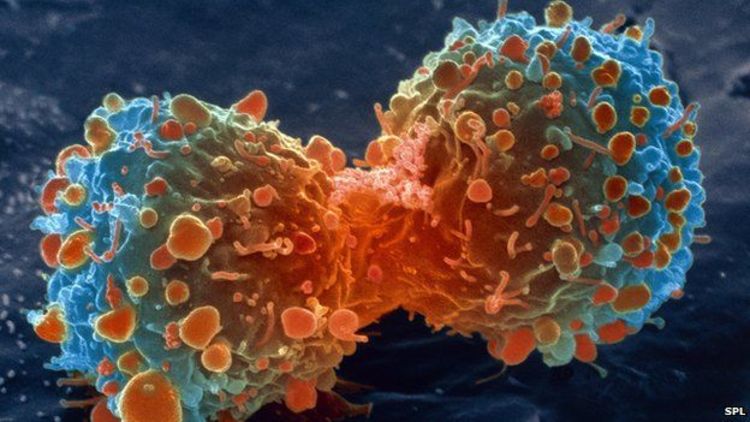
The Sunday Mail

Madzudzo Michelle Chishamiso
Pain, death, hopelessness, incurable, are usually the words that ring a bell in one’s mind when the word cancer is mentioned. Cancer is a grossly misunderstood disease, many of us have the ill-advised notion that cancer is a death sentence. It is not, there have been major improvements in the diagnosis and treatment of cancer.
Cancer is now a growing concern in the developing countries. Unfortunately, it seems to be a forgotten disease in Zimbabwe.
There seems to be a large gap or deficit on the amount of cancer information available to the average Zimbabwean.
Background
World Cancer Day takes place every year on February 4. It was founded in 1933 in Geneva, Switzerland.
It is the initiative by the Union for International Cancer Control, a non-governmental organisation that unites the cancer community to reduce the global cancer burden, promote greater equity and to integrate cancer control into the world health and development agenda.
World Cancer Day is the ideal opportunity to spread the word and raise the profile of cancer in people’s minds and in the world’s media.
Celebrating World Cancer Day offers the opportunity to demonstrate control strategies in Zimbabwe and identify the best ways to disseminate and accelerate promotion and education with the aim of promoting healthy behaviours and lifestyles to ensure that fewer people get cancer.
This year World Cancer Day took place under the tagline “We can, I can”. World Cancer Day explores how everyone – together and individually – can do their part to reduce the global burden of cancer.
Just as cancer affects everyone in different ways, everyone has the power to take action to reduce the impact of the disease on individuals, families and communities.
What is Cancer?
The human body is made up of tiny building blocks called cells. Each cell can divide in a certain way and dies finally.
When a cell starts to divide at a very abnormally fast rate and do not die but start to multiply, the result is cancer which is also called a malignancy. Cancer has a tendency to move from its point of origin and travel to other body organs, this process is called metastases.
The most common sites to which a cancer can metastasis are the liver, lungs, brain, heart and blood.
The human body has 60 different organs and each organ can develop cancer.
A specific organ can develop a certain number of different cancer, for example the brain can develop over 10 types of cancers thus there are over 200 types of cancers the human body can develop.
Note, there is no hair cancer!
According to the Zimbabwe National Cancer Registry, in their latest edition, which is the 2013 annual report, a total number of new cancer cases recorded among Zimbabweans in 2013 was 6 548 comprising 2 777 (42,4 percent) and males 3 771 (57,6 percent) females.
The top five adult cancers are: cervical, Kaposi’s sarcoma, prostate, oesophageal and breast.
In Zimbabwe the most common cancers in children are: Wilms’ tumour, retinoblastoma and non-Hodgkin’s lymphoma.
Cancer causes
There is no known cause of cancer but there are some risk factors associated with it. The risk factors vary according to the level of economic development.
In Zimbabwe the major risk factors are: infection, for example HPV, HBV, Helicobacter pylori, schistosomiasis; tobacco; alcohol; sadiation, genetic factors; diet; age; pollution; oral contraceptives; occupational pollutants and chemicals.
There are seven warning signs of cancer. These are: a sore throat that does not heal; nagging cough or hoarseness of voice; indigestion or difficulty in swallowing; thickening or lump in breast or elsewhere; obvious change in a wart or mole in size or appearance; unusual discharge or bleeding from breast, penis or vagina; and change in bladder and bowel movement, constant constipation or diarrhoea.
Treatment
In Zimbabwe, three major methods are used to treat cancer either alone or in conjunction with each other as in most cases. These are:
Surgery: This is the removal of the affected part or organ of the body
Chemotherapy: This is the use of drugs to destroy cancer cells, it is given to either cure cancer or to shrink the growth of the cancer or to increase the effectiveness of surgery by killing possible remaining cells.
It is given as an injection in most cases, or as pills or tablets. It is frequently given in courses with rest between periods to allow normal cells to recover.
Radiotherapy: This is the form of treatment which uses high energy X-rays to destroy cancer cells, commonly referred as kupisa in Shona. The patients are treated with very big machines called linear accelerators, the treatment is normally given daily from Monday to Friday with breaks during weekend until the treatment is finished depending on the number of days a patient is given.
In Zimbabwe, radiotherapy is offered being offered at Parirenyatwa Group Of Hospitals. The centre provides treatment on an outpatient basis
Cancer prevention
Although there is no way of ensuring you will not get cancer, reduce your risk by:
◆ Stopping smoking
◆ Reducing alcohol intake
◆ Avoiding over-exposure to the sun
◆ Limiting dairy foods, sugar and salt intake
◆ Eating a high fibre diet rich in fruits and vegetables
◆ Avoid additives such as nitrites, preservatives and colourants
Prevent irritants at work such as dust, tar, wood, agricultural chemicals
Having medical checks regularly, this leads to early detection.



